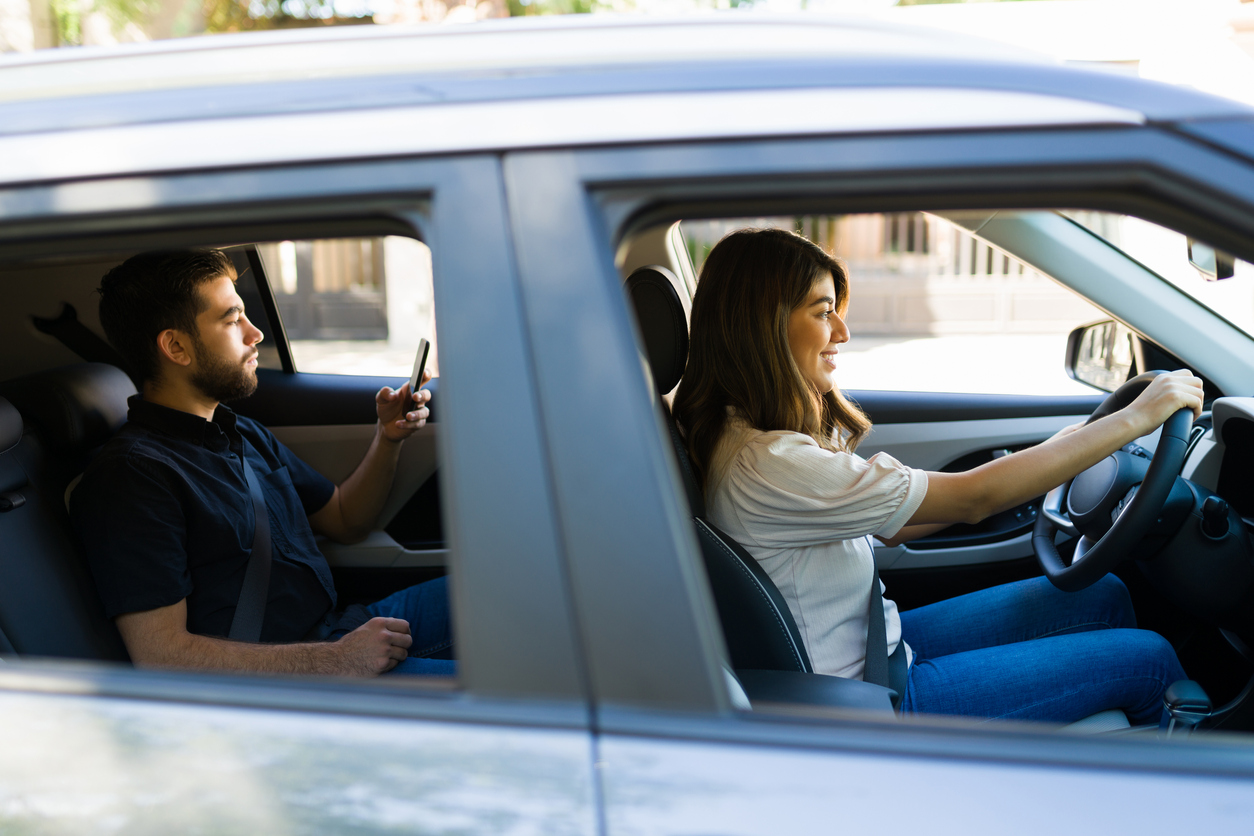The Total Coverage Blog

A while back (1885 to be exact), Karl Benz created the modern car by utilizing a gasoline engine. We imagine that everyone stood back and said, “this invention is fantastic” and then followed up with “but what else can the car do?” Since then, we’ve come up with a bunch of clever ways to use cars, both for pleasure and business. By the time on-demand services came around, there was a clear need for rideshare insurance.
Now, you probably know that there is a difference between insuring a car for personal use vs. one being used for business. But did you know that the line separating the two isn’t always clear?
Using your car for ridesharing, food delivery, or car sharing services can make for a great side-job or even a full-time gig. But it’s important to understand your auto insurance coverage when personal use and business start to mix. The most important thing you can do is call your local insurance agent (hopefully us!) and let them know you will be using your vehicle for business. However, let’s take a moment to break this down by category.
Companies like Uber and Lyft each offer their drivers some rideshare insurance coverage. And because ridesharing operates via a mobile app, they typically use offline and online to draw the line between their auto insurance policy and your personal auto insurance policy.
If you are a rideshare driver, some insurance companies – like Erie – can designate your car as “business use”. This designation gets put into place to make sure you are covered during every part of your trip, helping you to avoid gaps in coverage.
Are you ready for some take-out?
 What about food delivery from the driver’s point of view? With options from the likes of DoorDash, Uber Eats, Instacart, GrubHub or your local pizza shop, there’s no shortage of job opportunities.
What about food delivery from the driver’s point of view? With options from the likes of DoorDash, Uber Eats, Instacart, GrubHub or your local pizza shop, there’s no shortage of job opportunities.
Auto coverage from the companies listed above is hit or miss though. Plus, your personal auto insurance isn’t likely to cover you or your car while you’re actively making deliveries.
For example: GrubHub doesn’t offer any insurance at all. On the other hand, DoorDash will provide auto insurance to their drivers, but with specific stipulations.
A lack of consistency across the delivery industry creates a bit of an insurance gray area, which unfortunately leaves delivery drivers at risk. However, a business use designation on your vehicle is a relatively cheap way to insure your car for limited business use.
And if you’re not into driving, maybe you’ve decided to rent out your car…
Perhaps a more unique side-gig is becoming a car share host. If you don’t do too much driving of your own and sign up with a company like Turo, you’ll loan your car out to others looking for a rental set of wheels.

Your personal auto policy voids coverage when sharing your car through a company like Turo. Because of this, Turo offers each host a variety of insurance options. It’s a clever system that deducts a percentage of your rental fee based on the level of coverage that you choose.
If you have your own commercial policy in place, you can waive Turo’s plans and any damage to your vehicle runs through your commercial policy.
If you decide to rent out your car or even an RV privately, you will want to contact your agent to discuss your options.
Once you hop back in your car, your personal insurance coverage resumes.
The most important thing you can do is call your local insurance agent (hopefully us!) and let them know you will be using your vehicle for business.
So how do you protect yourself as a driver or as a car share host? If you use your vehicle for any type of business activity, simply put, you should contact your insurance agent. They will be able to set you up with the proper designation or auto policy, so you aren’t putting your coverage in jeopardy. Plus, look into what your chosen on-demand service offers as a policy. Then you’ll know you’re covered from point A to point B.
Need an auto policy or have questions? Contact us!